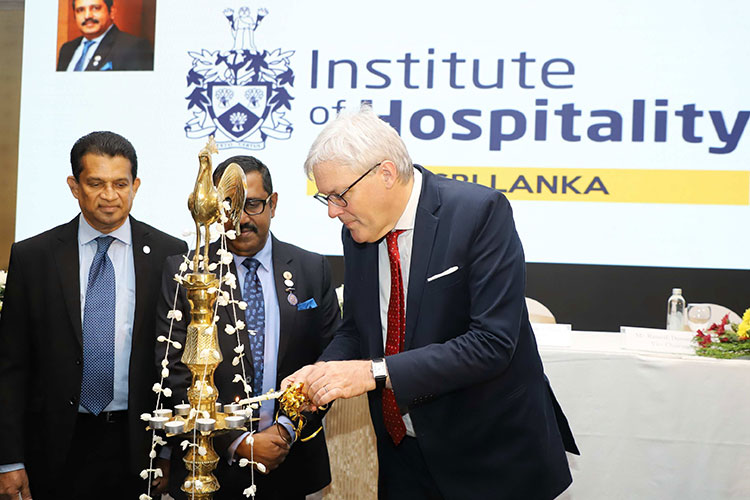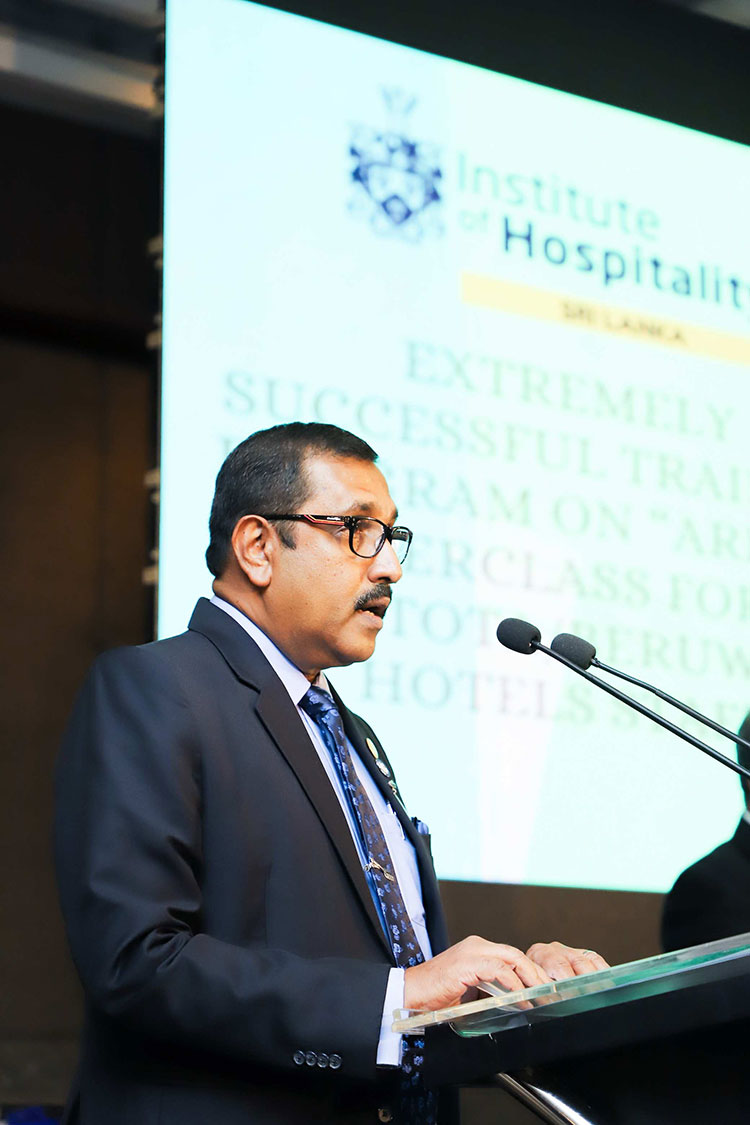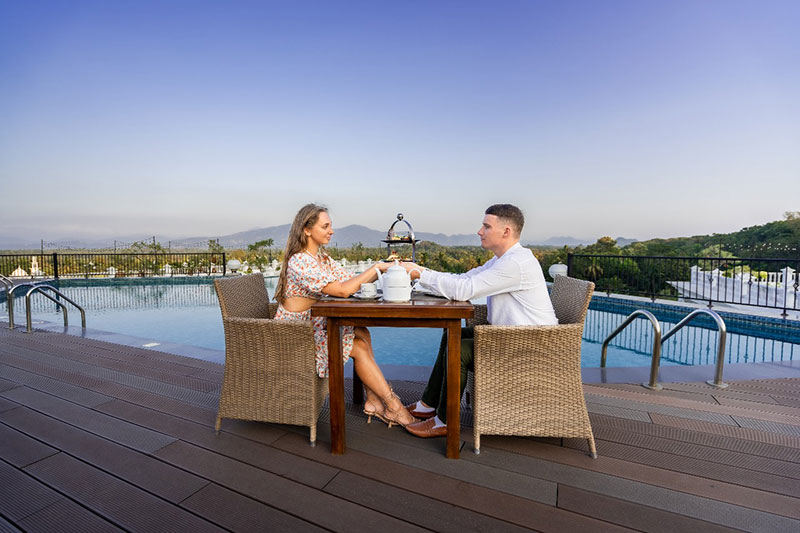Life style
Little island , big flavours : Sri Lankan food finally gets its due
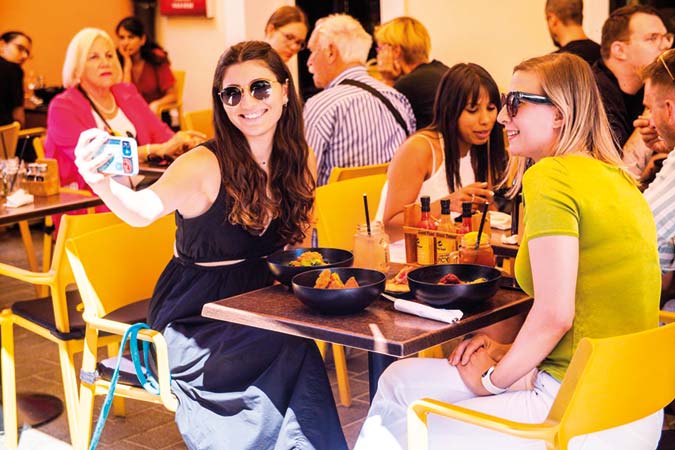
By Zinara Rathnayake
When Kolamba first opened in 2019, many diners who walked into the charming eatery in central London’s Soho district weren’t familiar with Sri Lankan cuisine. They thought it was just like Indian food, says the restaurant’s co-founder, Aushi Meewella, who grew up in Sri Lanka.
“We felt Sri Lankan food was underrepresented in central London, so we wanted to bring the dishes we grew up on and missed when we moved away,” she tells CNN.
While Sri Lanka is India’s little neighbour, with only 22 million people, its food and culture are quite different.
And now, a new generation of Sri Lankan chefs and entrepreneurs across the world is shining the spotlight on their native cuisine, while embracing the country’s diverse culinary heritage.
Meewella credits tourism for the recent surge in interest and support for Sri Lankan food.
Although tourist arrivals were halted by a series of setbacks including a deadly Easter bomb attack, the Covid-19 pandemic, and, more recently, the country’s worst-ever economic crisis, Sri Lanka is back on the tourism radar, already tracking over 800,000 visitors in 2023 as of the first week of August. As Meewella explains it: “People visit, discover our diverse island, and try our food, which they realize is also delicious.”
Chef Dhayanie Williams, a contestant on “MasterChef Australia 2019,” says the rise of social media in the last decade and programs like Masterchef have also helped professional and home chefs promote Sri Lankan food in the international market.
“We’ve seen many participants stick to their roots and create authentic Sri Lankan dishes on these programs,” says the chef, who is known for the Sri Lankan crab curry and chicken curry she cooked on the show.
“This continuous online exposure makes people try out Sri Lankan food in restaurants.”
Diverse influences
Today, more and more Sri Lankan chefs across the world are championing Sri Lankan food while defying common misconceptions about the cuisine.
“It has helped change the global perception that Sri Lankan food is different from Indian food, and it’s not only a lot of curries paired with rice,” Williams says.
For example, despite sharing a name, Sri Lankan roti are smaller, thicker “discs” made of freshly grated coconut and rice flour, unlike the large Indian rotis, which are made of wheat.
Rice, coconut milk, native fruits, vegetables and seafood act as the building blocks of Sri Lankan cuisine. Meewella explains that it draws inspiration from diverse ethnic cultures and the influences of the Dutch and Portuguese, who once ruled Sri Lanka.
At Kolamba, mains include mutton poriyal, a common preparation in the Tamil-populated northern region of Sri Lanka in which the meat is dry-fried with onions, green chili and lime. One popular dessert is watalappam, a coconut and palm jaggery custard prepared by Muslims to celebrate Eid.
Meewella points out that Sri Lankan cuisine is also heavily plant-based with many vegan options, which helps the cuisine stand out and resonate with global audiences. “This way of eating is not a fad for us,” she adds.
For centuries, Sri Lankans have made use of wild and organically-grown ingredients like jackfruit, water spinach and yams, blending them with spices and herbs, and frying and currying them to create dishes with unique flavors. Kolamba’s menu pays homage to these plant-based recipes with dishes like breadfruit curry cooked with coconut milk and raw green banana fried with grated coconut.
In Sri Lankan cooking, the white flesh of the coconut is grated and squeezed to prepare rich, creamy coconut milk, which thickens different vegetable and meat-based curries. Fresh coconut milk is also added to a morning smoothie-like drink called kola kenda, made with herbs and rice. During celebratory events like the New Year or the first day of a job, Sri Lankans also cook coconut milk with rice to prepare a creamy breakfast called kiribath.
“When I hosted brunches at home, I didn’t expect there would be an appetite for dishes like kiribath, but people fell in love with the flavours of my childhood,” says Sam Fore, a Sri Lankan-American chef based in Lexington, Kentucky. “Eventually, the demand got so great that I set up a tent behind a bar in town to start selling the food I was cooking.”
Within two years, Fore’s pop-up got nationwide attention for spotlighting simple recipes incorporating Sri Lankan elements. Now, Fore is ready to open her first restaurant in Lexington.
Spicy, sour, sweet
Although people assume that Sri Lankan food is spicy, it’s made up of many other spices and herbs besides chilli. Coriander seeds, black pepper, mustard seeds, nutmeg, cinnamon, cardamom, curry leaves, pandan leaves and lemongrass are all used to flavour and scent dishes.
Spices are also roasted and ground together to make different types of curry powder, an essential flavouring agent.
These varied flavours of Sri Lankan cuisine apply well to common culinary techniques, Fore says.
For instance, she prepares fried chicken, a dish Americans are familiar with, but infuses it with the spices of Sri Lankan chicken curry, grinding and combining them with buttermilk to carry the flavours.
“I don’t dump the spices down in my dishes,” Fore says. “I try to honour the recipes passed down to me and introduce flavours to diners that appear unexpectedly, but in a way that makes them understand my point of view.”
Across the world, chefs like Fore aren’t shying away from using innovative approaches to introduce Sri Lankan cuisine.
At Nadodi, a Kuala Lumpur restaurant that serves elevated Sri Lankan and South Indian fare, Williams came across a dish called “Yesterday.” This dish was reminiscent of Sri Lankan diya bath or pazhaya soru kanji, a day-old rice soaked overnight in water and eaten with dried, cured chilies.
Nadodi serves it with fried dry fish and pickles, all layered in a mini clay pot. “The dish is authentic and awakens one’s memories through elevating flavours, and plating it in a sophisticated way,” Williams says.
In Zagreb, Croatia, Brian Senaratne, co-founder of the city’s popular Sri Lankan restaurant Curry Bowl, shares similar values.
“We preserve original flavours, but keep it simple,” he says. “Usually, when we (Sri Lankans) go to a restaurant, we order several curries and rice separately, and share it with the entire group, but we noticed that European diners each order a dish. So having 10-15 curry dishes on the menu will only make it very complicated.”
Instead, Senaratne simplified this decision-making process for his diners, most of whom are European and haven’t previously had Sri Lankan food, by introducing curry-based bowls that also look appealing.
The theatre of making some dishes also helps them stand out. Curry Bowl’s top seller is kotthu, a popular street food made by smashing roti with vegetables, eggs and meat on a metal grid with metal clamps, leading to a distinctive metal-on-metal sound.
“This was quite a show for the first-comers,” says Senaratne. “They hear the noise, come inside, and are completely amazed. We’ve had many people who try kotthu, hear about Sri Lanka from us and end up visiting Sri Lanka.”
As chefs and entrepreneurs across the world add their unique touches to native dishes, both Fore and Williams believe that interest in Sri Lankan food will continue to expand.
“As the cuisine grows, it’s going to take some creative applications of flavours like chili, lime and tamarind for a full crossover into the international palate,” Fore says. “It’s up to us as cooks to honour our roots while innovating for the future. I cannot wait for casual Sri Lankan food to become a nationwide craving across America.”
(BBC)
Life style
Camaraderie,reflection and achievements

Institute of Hospitality Sri Lanka
 The 32nd Annual General Meeting (AGM) of the UK-based Institute of Hospitality’s Sri Lanka Chapter was held recently at the Ramada Hotel Colombo,.The event provided an evening of camaraderie , reflection of the past and present achievements,setting new benchmarks for the future
The 32nd Annual General Meeting (AGM) of the UK-based Institute of Hospitality’s Sri Lanka Chapter was held recently at the Ramada Hotel Colombo,.The event provided an evening of camaraderie , reflection of the past and present achievements,setting new benchmarks for the future
The AGM had the presence of two distinguished guests, the Chief Guest Opposition Leader Sajith Premadasa, and the Guest of Honour British High Commissioner to Sri Lanka, Andrew Patrick. Their inspiring speeches were lauded by all hoteliers who were present at the occasion
A special thanks was extended to Robert Richardson, CEO of the Institute of Hospitality UK, along with his team, sponsors, committee members, and all attendees for making the event memorable.
Dr. Harsha Jayasingh, Past President of the Institute of Hospitality (UK) Sri Lanka Chapter, emphasised the Institute’s longstanding history and the strength of its Sri Lankan branch. “The Institute of Hospitality (IH) UK has a history of 86 years, and we are proud to be the Sri Lanka Branch. IH Sri Lanka is much stronger now with many members from all areas of the hospitality industry,” he stated.
Dr. Jayasingh highlighted the significant role of tourism in Sri Lanka’s economy,. He said tourism it is the third-largest source of revenue for the country. “Tourism accounts for about 13.3% of total foreign exchange earnings and employs 450,000 people directly and indirectly. The hospitality industry in this island of pearl holds tremendous potential for economic growth, job creations, and cultural exchange,” he added.
He also pointed out more women should be attracted to the industry and advocated for the use of technology in hospitality sector to attract the younger generation.
The newly appointed Chairman Ramesh Dassanayake spoke about the challenges faced by the industry, including the reluctance of youth to join the sector. . Dassanayake expressed concerns over the migration of staff between hotels and the overall ‘brain drain’ in the sector. ” We must maintain high standards in the hotel We must try to attract tourists to Sri Lanka, we must have with many facilities Hence, hotel schools and other professional institutions involved in skills development mustincrease their intakes,” he pointed out.
Chief Guest Sajith Premadasa emphasised the importance of eco tourism and said “We need to have an environmental policy related to tourism in place,” . .
The 32nd AGM of the Institute of Hospitality UK, Sri Lanka Chapter, was a testament to the strength and potential of Sri Lanka’s hospitality industry. The insights and commitments shared during the event set a new benchmark for the future.(ZC)
Pix by Thushara Attapathu
Life style
He recognizes human identity beyond boundaries of gender, race, nationality and religion.
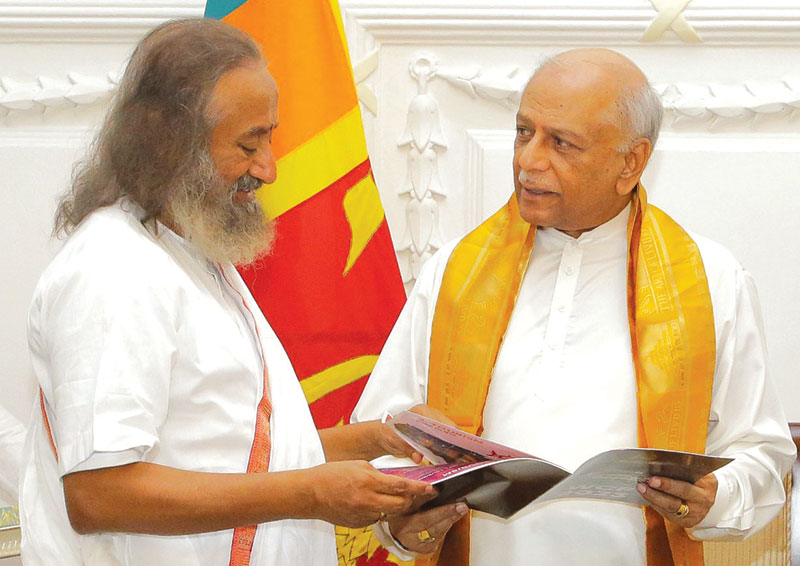
Visit of Sri Gurudev to Sri Lanka
Humanitarian, spiritual leader and Global Ambassador of Peace Gurudev Sri Sri Ravi Shankar (Sri Gurudev) was in Sri Lanka on a three day tour on the invitation of the Prime Minister of Sri Lanka Dinesh Gunewardene. Gurudev who inspired a wave of volunteerism and service to moot one of the largest volunteer-based organisations in the world – The Art of Living – visited the various projects under the aegis of the foundation and launched twelve vocational and technical centers around the island. He was accompanied by thousands of followers from Sri Lanka and around the world.
Gurudev who visited Sri Lanka for the sixth time also had a first day cover launched in honour of his visit. He is a strong proponent of spreading happiness, using the unique Sudarshan Kriya, yoga, meditation and practical wisdom to unite people, empower individuals and transform communities. His programmes provide techniques and tools to live a deeper, more joyous life, while his non-profit organisations recognize the human identity beyond the boundaries of gender, race, nationality and religion.
The Art of Living which has more than 30,000 teachers and over one million volunteers across 180 countries has touched in excess of five hundred million people around the world. CNN called it “Life Changing” and The Washington Post headlined it, “Fresh air to millions”.
In Trincomalee, Gurudev met with war victims and had a heartwarming engagement with the children from the children’s homes run by the Foundation. He also visited the Koneswara Temple in Trincomalee and graced the Kumbhabhishekam at Seetha ecogPnize the human identity beyond the boundaries of gender, race, nationality and religion. Amman temple at Nuwara Eliya. He held discussions with the trustees on the progress of the foundation’s social service projects, while also holding a special event – Ekamuthuwa – attended by a large number of dignitaries and his devotees from around the world.
His time with the Prime Minister was spent discussing the prospects of unity in diversity and uniting Sri Lanka by adding happiness into the formula of living. In addition he had discussions with the Speaker of the Parliament of Sri Lanka Mahinda Yapa Abeywardena, prominent business stewards and civil society leaders.
Life style
Bridal shows with opulence and luxury at The Epitome hotel in Kurunegala
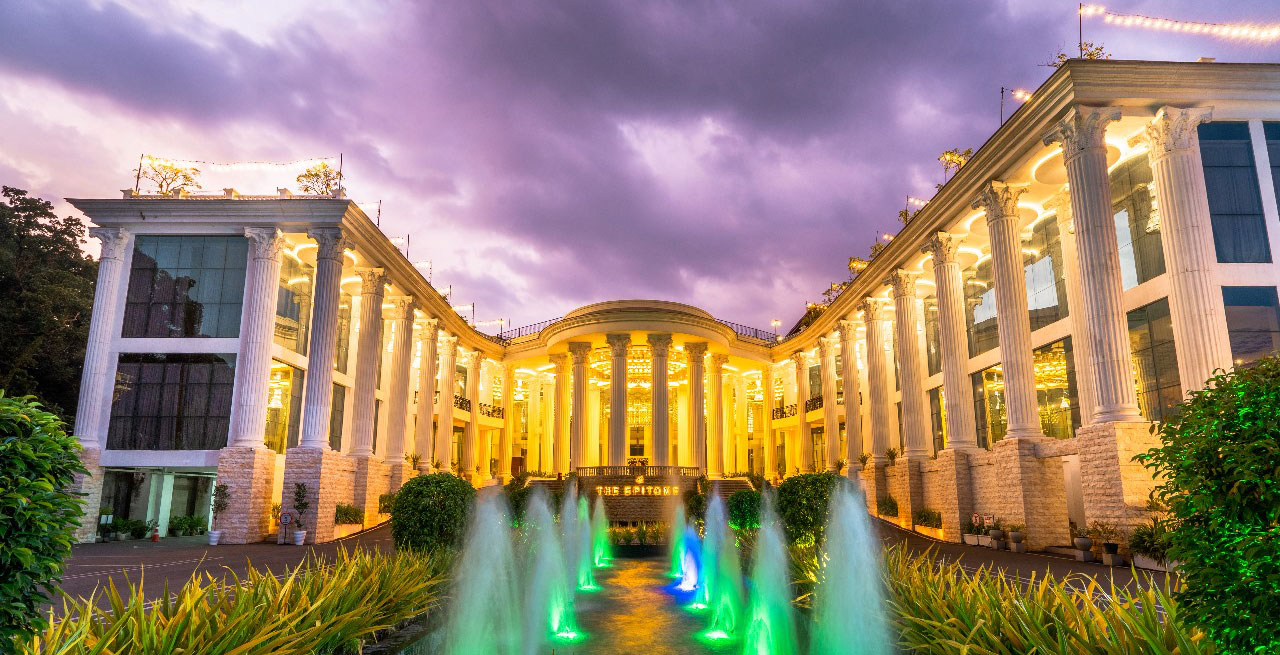
by Zanita Careem
Envison your dream wedding day come to life at the Epitome Hotel, a prestigious city hotel in Kurunegala offering an unrivalled luxury rendors experience for weddings.
The venue is designed to embody opulence and luxury from all quarters for a spectacular wedding in kurunegala,Thier ballroom is the largest banquet facility in Sri Lanka It can be divided into six luxurious pillarless wedding halls on the ground floor and 25pax smaller banquet halls.
It can be easily named as a five star heaven in the heart of the city contributing to a myriad of immense experiences tailored to inspire and delight wedding experiences.
From opulent décor set up to exquisite table decor, lavish food, every detail is meticulously curated to spark your imagination and ignite creativity for a perfect wedding. The previous prestigious wedding shows season one and season two attracted large crowds
were unique events which gave the wedding vendors and potential clients had an opportunity to connect and interact with each other. Beyond being a showcase it was a chance for the wedding vendors to unite and contribute to the vibrancy of the wedding industry. The wedding show covered all area of the bridal industry providing a comprehensive variety of bridal supplies from Sri lanka and became the most popular bridal exhibitions in Kurunegala.This bridal exhibitions allowed brides and grooms to experience first hand the products and services available from suppliers in Sri Lanka
These wedding shows held at The Epitome created a benchmark and gave an opportunity for vendors to create connections to the utmost satisfaction said Harshan Lakshita Executive Director. of the magnificent Hotel
Our wedding shows featured experts and professionals in every field‘ It covered all areas of the bridal industry provided a comprehensive variety of bridal supplies from Sri lanka and became most popular bridal exhibition in this region.We are always open to everyone to join us at our wedding shows in the future. It is an opportunity to discover the incredible talent within our local wedding and bridal vendors to make meaningful relationships and plan thier special day at our breathtaking hotel The Epitome said General Manager Kavinda Caldera
The Epitome Hotel’s bridal show which will be held end of June will buzz with great ideas,advice and inspiration for all those who plan thier dream wedding
…….
The Hotel Epitome’s Wedding Season 3 will marked excellence, celebration and inspiration for those in the wedding industry. The exhibition halls will resonate with ideas on exquisite bridal wear to decor, florists , photography etc and showshowcase the rich tapestry of talent within the local wedding industry. .






